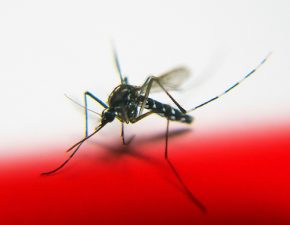 According to experts, climate change and rising food insecurity are major contributors to the recent destabilization of Mali and southern Algeria
According to experts, climate change and rising food insecurity are major contributors to the recent destabilization of Mali and southern Algeria
Over the last couple of years, there has been a growing link between climate change and political issues in the Middle East. During the Arab Spring there was a real recognition that rising food prices caused by droughts in Russia and the US brought ordinary people to the streets in protests like never before. In Syria, poor water policies were held up as a major contribution to the drought which forced 500,000 Syrians to flee their homes. Now, experts state that global warming is also playing a role in the destabilization of Mali and southern Algeria which has hit the news.
Writing at ‘Informed Comment’, Juan Cole states that although the conflict erupting in Mali is complex politically and socially, changing ecology caused by climate change is a major contributor to the region’s problems. The climate of the Sahel, which Mali is a part of, has fluctuated significantly over the last 100 years:
“In the first 7 decades of the twentieth century, the region got a fair amount of rainfall, and lower Mali where the capital of Bamako is could raise livestock, making Malians agriculturally relatively well off. The consequent rise in population (Mali is now about 15 million) probably made the country overpopulated for what it could sustain in the more arid decades after 1980, when the warming waters of the Indian Ocean produced dry conditions in the Sahel.”
As more and more carbon was (and still is) pumped out by countries all over the world, the climate of the Sahel has become drier. According to a report released October 2012 by the Food and Agriculture Organization of the United Nations (FAO) on food security in Mali, things look set to get worse. Based on the worst case scenarios that they have evaluated, it is estimated that global warming could reduce the amount of food produced in Mali by as much as 16% by 2050. The report also found that the population sustained by agricultural production may encounter a reduced standard of living with an additional 1,130,000 people in rural areas falling below the poverty line by 2050.
Even more worrying, climate change is expected to pose an additional threat to 12% of the population who are currently food insecure and more broadly, to small marginal farmers in many sub-Saharan countries. And all this will no doubt have huge social and political implications.
As Cole points out in his article, climate change factors have already contributed to the political situation which Mali finds itself: “The weakness of the Mali government likely is related to the drought years of the past decade, during which hundreds of thousands of Malians were forced to emigrate to other countries and the agricultural productivity and tax base of the more fertile south was devastated…The drought of the 1970s caused thousands of northern Mali Tuaregs to go to Libya. Col. Muammar Qaddafi organized them as a mercenary unit. Qaddafi, however, dissolved it in the late 1980s, at which time many Tuareg came back to Mali and participated in the 1990 coup.”
For more on the politics and environment connection in MENA see:
Unsustainable Water Policies Crippled The Assad Regime (INTERVIEW)
Climate Change Could be as Dangerous to Syria as Bashar al-Assad
500,000 Syrians Flee Drought-Stricken Zone
#Occupy Climate Change: The Arab Spring & Occupy Wall St
: Image of young girl watering vegetables in Mali via abossuet/flickr.




Permettez moi de vous dire que l’Algérie, possède l’une des plus grande nappe d’eau (fossile) au monde, appelée le continental intercalaire, et puis un méga-projet de transfert d’eau, de plusieurs Milliards de Dollars, a été réalisé dans le grand Sud, pour alimenter ces régions du Sud. Ajoutant à cela, que l’eau du robinet dans les régions du Sud algérien coule 24/24, encore mieux que les ville du Nord . Sans parler des méthodes d’approvisionnement en eau ancestrales que connait ces habitant nomades du Sud (Fouggarats : technique de captage et drainage d’eau souterraine, très ancienne, d’origine Perse probable (Khanat)). Et je pense, que le besoin en eau (due au Climate Change) n’est pas un argument, qui vas impliqué L’Algérie en conflit avec le Mali.
You can’t be serious ! A good history lesson is needed.